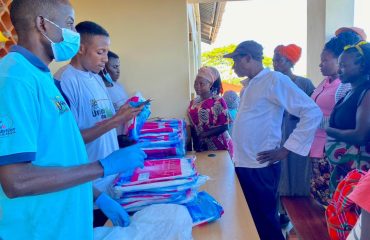
The Palliative Care Association of Uganda (PCAU) marked 25 years of service to the nation with a major event held at Silver Springs Hotel, Bugolobi. The guests included the Minister of Health, Dr Jane Ruth Aceng, and the Minister of General Duties in the Office of the Prime Minister, Hon Justine Kasule Lumumba, who represented the Prime Minister.
Since its establishment in 1999, PCAU has made significant strides in expanding access to palliative care services across Uganda. Among its notable achievements is the issuance of Instrument No. 424 by the Ministry of Health, a groundbreaking policy that allows trained nurses and clinical officers to prescribe oral liquid morphine, an essential pain management solution. This policy has greatly alleviated suffering for patients with chronic and life-threatening illnesses.
In partnership with USAID, PCAU also developed a national palliative care training curriculum for health workers, equipping medical professionals with the necessary skills to provide holistic care. The association has gone further to establish 17 accredited home care programmes and enabled 227 health facilities to offer palliative care services by 2010. Today, PCAU boasts a network of over 10 regional branches, 30 member organisations, and 1,550 individual members.
Collaborating with partners like Uganda Network on Law, Ethics, and HIV (UGANET), PCAU has ensured that even vulnerable groups can access their right to quality palliative care. However, despite these accomplishments, significant challenges persist. Uganda is yet to adopt a stand-alone national palliative care strategy, which hampers a comprehensive approach to service delivery. Public awareness remains limited, with misconceptions that palliative care is only for the elderly or for those with terminal illnesses such as cancer, tuberculosis, or advanced HIV.
Funding for palliative care services remains inadequate, and integration into mainstream healthcare systems is far from complete. At least 39 districts, including Bushenyi, Kamwenge, Abim, Kotido, Budaka, Luuka, Buvuma, and Kassanda, still lack access to these critical services.
Palliative care is more than pain management; it provides emotional support, guidance, and dignity to patients and their families. For many facing chronic illnesses, it represents a lifeline, offering a semblance of normalcy and relief in the most trying times.
During the celebrations, Dr Jane Ruth Aceng praised PCAU’s efforts and announced the establishment of a dedicated palliative care division within the Ministry of Health. She reiterated the government’s commitment to rolling out these services nationwide, with the aim of addressing disparities in access.
Hon Justine Kasule Lumumba lauded PCAU’s contributions, describing palliative care as the cornerstone of Uganda’s healthcare system. She emphasised the urgent need for greater integration of palliative care into health services to ensure no Ugandan is denied access to compassionate and dignified care.
As PCAU reflects on 25 years of service, its work remains a source of hope for thousands of Ugandans. The association’s commitment to ensuring universal access to palliative care continues to inspire, as it seeks to overcome existing challenges and extend its life-changing services to every corner of the country. Through partnerships, advocacy, and a steadfast dedication to the vulnerable, PCAU exemplifies the transformative power of compassionate care in uplifting the human spirit.

